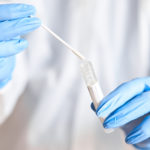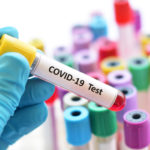
International Overdose Awareness Day 2024
In 2019, there were around 600,000 deaths due to drug use and 2.6 million deaths due to alcohol consumption globally. International Overdose Awareness Day (IOAD) occurs each year on August 31 to raise awareness about overdose, reduce stigma related to drug-related deaths, and promote change to minimize the harms associated with drug use.
An overdose happens when a toxic amount of a drug or medicine is taken, and it can be unintentional, fatal, or non-life-threatening. Nevertheless, an overdose is a medical emergency that requires immediate attention. Substances that individuals can overdose on include alcohol, prescription medications, over-the-counter medications, illicit drugs, and some herbal remedies.
In the UK, there were 10,048 deaths from alcohol-specific causes registered in 2022, which is the highest number on record. Moreover, England and Wales recorded 4,907 deaths related to drug poisoning in 2022. Additionally, Northern Ireland reported 154 drug-related deaths and 127 drug misuse deaths, while 1,051 people lost their lives to a drug-related death in Scotland in 2022.
Some common causes of overdoses include improper drug storage practices, ignoring drug dosage instructions, inappropriate use, and mental health issues such as anxiety, depression, or suicidal thoughts.
All drug and alcohol overdoses are preventable. International Overdose Awareness Day aims to raise awareness of evidence-based strategies and tools that can help prevent overdoses, ultimately with the hope of preventing harm and saving lives from overdose.
The issue of overdose is complex, encompassing stigma, discrimination, and widespread misunderstandings about drug use and those who use drugs. To effectively prevent overdoses, a united effort from governments, organizations in and outside of the health sector, and a caring, well-informed community is needed. Addressing the ongoing global overdose epidemic effectively will require the collaboration of several elements, including empowering communities to raise awareness, supporting reform and rehabilitation efforts, gaining insights and knowledge from individuals with personal experiences of overdose and drug use, and implementing culturally relevant solutions.
The widespread issue of addiction presents a persistent and distressing challenge for individuals who are dependent on drugs and alcohol, often resulting in prolonged suffering when they are unable to access evidence-based treatment or encounter discrimination. The repercussions of addiction can have extensive negative effects not only on the individuals but also on their families, potentially spanning multiple generations, as well as their friends and colleagues. Drug and alcohol use can significantly endanger both physical and mental well-being, particularly during the formative stages of adolescence.
Different types of drug overdoses can lead to varying symptoms. For example, overdosing on a central nervous system depressant like an opioid can cause loss of consciousness and cessation of breathing. On the other hand, a stimulant drug overdose can result in symptoms such as overheating, cardiac events, or neurotoxicity-related symptoms.
If you suspect someone is experiencing an overdose, call for emergency assistance and then administer first aid if you are able to. Fact sheets from Penington Institute provide information about the signs of an overdose and how to respond based on different drug types.
Between April 2022 and March 2023, 290,635 adults were in contact with drug and alcohol services, with 137,749 adults entering treatment. More than 99% of people in treatment received some form of structured treatment.
According to UK Office for Health Improvements & Disparities, a total of 127,385 people left drug and alcohol treatment in 2022 to 2023. Of the people who left treatment, 46% completed their treatment successfully and were discharged as ‘treatment completed’. The alcohol-only group had the highest rate of treatment completion at 58%, followed by the non-opiate group (51%) and the non-opiate and alcohol group (49%). The opiate-only group had a completion rate of 23%.
Biorex Diagnostics has a range of products for testing for drug and alcohol abuse. For more information on any of these tests or a quote, contact info@biorexdiagnostics.com
| Product Name | Number | Kit Size |
| Drugs of Abuse Control Level 1 | BXC0784A | 10 x 10ml |
| Drugs of Abuse Control Level 2 | BXC0785A | 10 x 10ml |
| Drugs of Abuse Control Level 3 | BXC0786A | 10 x 10ml |
| Blood Alcohol (Ethanol) | BXC0491A | R1: 3 x 20ml R2: 2 x 5ml R4: 1 x 2m |
| Blood Alcohol | OLY0491A | R1: 3 x 20ml R2: 2 x 5ml R4: 1 x 2ml |
| Blood Alcohol Calibrator | BXC0488A | 1 x 2ml |
| Blood Alcohol Control Level 1 | BXC0489A | 1 x 2ml |
| Blood Alcohol Control Level 2 | BXC0490A | 1 x 2ml |







